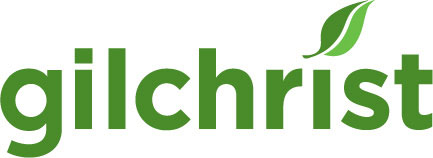Connecting, Bridging the Gap and Bringing Lives Together
Connecting, Bridging the Gap and Bringing Lives Together
May 21 is World Day for Cultural Diversity for Dialogue and Development.
As a hospice chaplain in Baltimore City and a co-chair of Gilchrist’s Diversity, Equity and Inclusion Council, I take great pride in connecting with our families and patients to best meet their needs. Part of that connecting is being aware of our differences and similarities—that is also the work of our Diversity, Equity and Inclusion (DEI) Council. We educate our staff on DEI issues related to race, gender, sexual orientation, religion and veteran status. This training helps ensure each team member is aware, welcoming and equipped to deliver culturally competent care.
Gilchrist provides services that help bridge the gap between the lives our patients and families have been living and preparing for a loved one’s end of life by calming the chaos and providing a comfortable, person-centered experience. Our diversity training ensures our care is inclusive of each family’s unique cultural and spiritual perspectives and care preferences.
The families we serve are grateful for this care, and we often hear comments such as:
“I don’t know how we could do this without Gilchrist” “Everyone has been so caring and thoughtful.” I am proud to know how much of a difference we are making in their lives.
Learning to Better Understand Others and Meet Their Needs
Part of the function of the DEI Council is to provide continued learning opportunities for Gilchrist teams to better meet families’ needs and to better understand each other. Some of the ways we have been doing this include:
A book study group using “White Fragility” by Robin Diangelo
We are piloting this book discussion group as an introduction to the bigger conversations we all need to have about race. The discussion will help participants understand why conversations about race may be so difficult and what we can do to move the conversation forward.
A video series based on “The 1619 Project” by Nikole Hannah-Jones
Gilchrist created a video series for staff based on the book “The 1619 Project” for Black History Month, Women’s History Month and Juneteenth. This book pulls from a more inclusive history that includes the stories of African Americans. It recounts timeline stories of enslaved people who gave their lives for this country and others who pushed back on our ill-informed colonialism. These individuals fought for our country and the ideals we said we wanted to uphold, even when we have historically fallen so short.
Honoring Our Differences
Ultimately, I hope to expand our thinking to a broader awareness of our presence in Baltimore City and the history we bring with us. As a white woman, I have learned I bring my race into every room—a realization many people of color live with every day. We can learn to honor differences without ignoring them. We can learn a more inclusive history and bear witness to the ways we have fallen short.
At Gilchrist, we bring this learning into the communities we serve to not only better meet their needs but also our own. We become more “whole” when we are aware of all peoples, cultures, different experiences and abilities.
May we continue to create the possibilities of Beloved Community, both within our workgroups and teams as well as the communities we serve. May it be so!
This blog was contributed by Debbie Bain, Diversity, Equity and Inclusion Council Co-chair for Gilchrist and GBMC Health Partners


